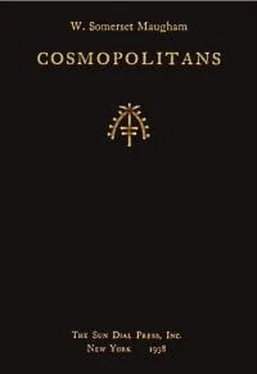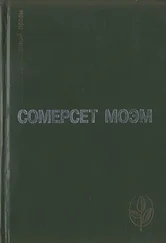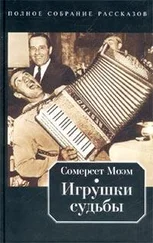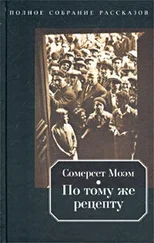Уильям Моэм - Cosmopolitans
Здесь есть возможность читать онлайн «Уильям Моэм - Cosmopolitans» весь текст электронной книги совершенно бесплатно (целиком полную версию без сокращений). В некоторых случаях можно слушать аудио, скачать через торрент в формате fb2 и присутствует краткое содержание. Город: New York, Год выпуска: 1938, Издательство: The Sun Dial Press, INC., Жанр: Классическая проза, short_story, на английском языке. Описание произведения, (предисловие) а так же отзывы посетителей доступны на портале библиотеки ЛибКат.
- Название:Cosmopolitans
- Автор:
- Издательство:The Sun Dial Press, INC.
- Жанр:
- Год:1938
- Город:New York
- ISBN:нет данных
- Рейтинг книги:5 / 5. Голосов: 1
-
Избранное:Добавить в избранное
- Отзывы:
-
Ваша оценка:
- 100
- 1
- 2
- 3
- 4
- 5
Cosmopolitans: краткое содержание, описание и аннотация
Предлагаем к чтению аннотацию, описание, краткое содержание или предисловие (зависит от того, что написал сам автор книги «Cosmopolitans»). Если вы не нашли необходимую информацию о книге — напишите в комментариях, мы постараемся отыскать её.
Cosmopolitans — читать онлайн бесплатно полную книгу (весь текст) целиком
Ниже представлен текст книги, разбитый по страницам. Система сохранения места последней прочитанной страницы, позволяет с удобством читать онлайн бесплатно книгу «Cosmopolitans», без необходимости каждый раз заново искать на чём Вы остановились. Поставьте закладку, и сможете в любой момент перейти на страницу, на которой закончили чтение.
Интервал:
Закладка:
I do not remember that for so small a sum I have ever purchased better entertainment. For Mr John Blackbridge in these pages of his did a thing no writer can do who deliberately tries to, but that, if done unconsciously, gives a book a rare and precious savour; he painted a complete portrait of himself. He stands before the reader so vividly that I was convinced that a wood-cut of him figured as a frontispiece and I was surprised to discover, on looking at the book again the other day, that there was nothing of the kind. I see him very distinctly as a man of middle-age, in a black frockcoat and a chimney-pot hat, wearing a black satin stock; he is clean-shaven and his jaw is square; his lips are thin and his eyes wary; his face is sallow and somewhat wrinkled. It is a countenance not without severity, but when he tells a story or makes one of his dry jokes his eyes light up and his smile is winning. He enjoyed his bottle of Burgundy, but I cannot believe that he ever drank enough to confuse his excellent faculties. He was just rather than merciful at the card-table and he was prepared to punish presumption with rigour. He had few illusions, for here are some of the things that life had taught him: “Men hate those whom they have injured; men love those whom they have benefited; men naturally avoid their benefactors; men are universally actuated by self-interest; gratitude is a lively sense of expected benefits; promises are never forgotten by those to whom they are made, usually by those who make them.”
It may be presumed that he was a Southerner, for while speaking of Jack Pots, which he describes as a frivolous attempt to make the game more interesting, he remarks that they are not popular in the South. “This last fact,” he says, “contains much promise, because the South is the conservative portion of the country, and may be relied on as the last resort of good sense in social matters. The revolutionary Kossuth made no progress below Richmond; neither Spiritualism, nor Free Love, nor Communism, has ever been received with the least favour by the Southern mind; and it is for this reason that we greatly respect the Southern verdict upon the Jack Pot.” It was in his day an innovation and he condemned it. “The time has arrived when all additions to the present standard combinations in Draw Poker must be worthless; the game being complete. The Jack Pot,” he says, “was invented (in Toledo, Ohio) by reckless players to compensate losses incurred by playing against cautious players; and the principle is the same as if a party should play whist for stakes, and all be obliged every few minutes to stop, and purchase tickets in a lottery; or raffle for a turkey; or share a deal in Keno.”
Poker is a game for gentlemen (he does not hesitate to make frequent use of this abused word; he lived in a day when to be a gentleman had its obligations but also its privileges) and a straight flush is to be respected, not because you make money on it (“I have never seen anyone make much money upon a straight flush,” he says) but “because it prevents any hand from being absolutely the winning hand, and thus relieves gentlemen from the necessity of betting on a certainty. Without the use of straights, and hence without the use of a straight flush, four aces would be a certainty and no gentleman could do more than call on them.” This, I confess, catches me on the raw, for once in my life I had a straight flush, and bet on it till I was called.
Mr John Blackbridge had personal dignity, rectitude, humour, and common sense. “The amusements of mankind,” he says, “have not as yet received proper recognition at the hands of the makers of the civil law, and of the unwritten social law,” and he had no patience with the persons who condemn the most agreeable pastime that has been invented, namely gambling, because risk is attached to it. Every transaction in life is a risk, he truly observes, and involves the question of loss and gain. “To retire to rest at night is a practice that is fortified by countless precedents, and it is generally regarded as prudent and necessary. Yet it is surrounded by risks of every kind.” He enumerates them and finally sums up his argument with these reasonable words: “If social circles welcome the banker and merchant who live by taking fair risks for the sake of profit, there is no apparent reason why they should not at least tolerate the man who at times employs himself in giving and taking fair risks for the sake of amusement.” But here his good sense is obvious. “Twenty years of experience in the city of New York, both professionally (you must not forget that he is an actuary and counsellor-at-law) and as a student of social life, satisfy me that the average American gentleman in a large city has not over three thousand dollars a year to spend upon amusements. Will it be fair to devote more than one-third of his fund to cards? I do not think that anyone will say that one-third is not ample allowance for a single amusement. Given, therefore, a thousand dollars a year for the purpose of playing Draw Poker, what should be the limit of the stakes, in order that the average American gentleman may play the game with a contented mind, and with the certainty not only that he can pay his losses, but that his winnings will be paid to him?” Mr Blackbridge has no doubt that the answer is two dollars and a half. “The game of Poker should be intellectual and not emotional; and it is impossible to exclude the emotions from it, if the stakes are so high that the question of loss and gain penetrates to the feelings.” From this quotation it may be seen that Mr Blackbridge looked upon poker as only on the side a game of chance. He considered that it needed as much force of character, mental ability, power of decision, and insight into motive to play poker as to govern a country or to lead an army, and I have an idea that on the whole he would have thought it a more sensible use of a man’s faculties.
I am tempted to quote interminably, for Mr Blackbridge seldom writes a sentence that is other than characteristic, and his language is excellent; it is dignified as befits his subject and his condition (he does not forget that he is a gentleman), measured, clear, and pointed. His phrase takes an ample sweep when he treats of mankind and its foibles, but he can be as direct and simple as you please. Could anything be better than this terse but adequate description of a card-sharper? “He was a very good-looking man of about forty years of age, having the appearance of one who had been leading a temperate and thoughtful life.” But I will content myself with giving a few of his aphorisms and wise saws chosen almost at random from the wealth of his book.
“Let your chips talk for you. A silent player is so far forth, a mystery; and a mystery is always feared.”
“In this game never do anything that you are not compelled to; while cheerfully responding to your obligations.”
“At Draw Poker all statements not called for by the laws of the game, or supported by ocular demonstration, may be set down as fictitious; designed to enliven the path of truth throughout the game, as flowers in summer enliven the margins of the highway.”
“Lost money is never recovered. After losing you may win, but the losing does not bring the winning.”
“No gentleman will ever play any game of cards with the design of habitually winning and never losing.”
“A gentleman is always willing to pay a fair price for recreation and amusement.”
“… that habit of mind which continually leads us to undervalue the mental force of other men, while we continually overvalue their good luck.”
“The injury done to your capital by a loss is never compensated by the benefit done to your capital by a gain of the same amount.”
“Players usually straddle when they are in bad luck, upon the principle that bad play and bad luck united will win. A slight degree of intoxication aids to perfect this intellectual deduction.”
Читать дальшеИнтервал:
Закладка:
Похожие книги на «Cosmopolitans»
Представляем Вашему вниманию похожие книги на «Cosmopolitans» списком для выбора. Мы отобрали схожую по названию и смыслу литературу в надежде предоставить читателям больше вариантов отыскать новые, интересные, ещё непрочитанные произведения.
Обсуждение, отзывы о книге «Cosmopolitans» и просто собственные мнения читателей. Оставьте ваши комментарии, напишите, что Вы думаете о произведении, его смысле или главных героях. Укажите что конкретно понравилось, а что нет, и почему Вы так считаете.










